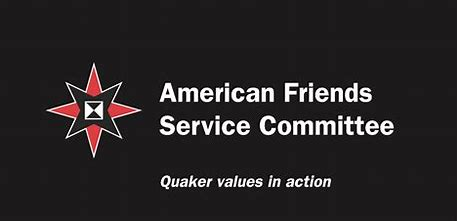Save a child. Become a Foster Parent

Why I became a Foster Parent
We can never know what cards we will be dealt with from life. The card that we received was my wife’s bareness; she was unable to bare children. After ten years of marriage and being without a family of our own I took it upon myself to see what foster parenting was about and to explore if it would be a good fit for our marriage.
Our first step was a home assessment to make sure it met state requirements to take in children and that we were financially stable.
Training involved some weekdays and a couple of weekends so that we could learn how to discipline, maintaining a healthy home environment, medical, psychological and academic needs and how to address them. Training also included; what to do in a worst-case scenario that involves returning the child to social services.
Social services were very accommodating in our county. We had no problems getting everything we needed in order to have a foster child.
The day came that our home received certification and became open to fostering.
It was hard work and uncharted territory but we hung in there and surprised ourselves at how well we did. Our lives were enriched beyond words; we grew as a marriage and eventually adopted two daughters from the Foster Care System.
If you have a place to accommodate one child, I urge you to give it a try you never know what can happen when you open your door and heart to a lost, terrified and troubled child. Sign up for an informational meeting and then training. A child’s heart and soul is waiting for stability and unconditional love of a home in a time of need.
PSA Foster Parenting click on the PSA link to watch the video, please
Foster Parent Informational meeting.
When: Monday, June 12, 2018
Time: 6:00 p.m.
Where: Santa Maria Inn 212 S. Broadway Santa Maria, CA.
For more information contact: Mr. Foster Care (222) 234-2282

Foster Care Interview Tips
by Autumn St. John
If you’ve applied to be a foster care parent, you’ll be asked to undergo a home study interview. This involves a representative of the home finding agency you’ve applied to come to your home and interviewing you. The home finder will ask you about your life, your parenting and family values, your reasons for wanting to foster and your ability to welcome a new member into your family. By thoroughly preparing for the interview and answering the interviewer’s questions appropriately, you’ll not only find out whether you’re suited to foster care but will also be assigned children for whom you are specifically suited.
Preparation
During the interview, the interviewer may ask you how your children feel about you becoming a foster family. So, talk to your children in advance of the interview so that you’ll be able to give the home finder an honest answer. Then, arrange for a babysitter to come to your house before the interview starts so that she can take your children to another room and look after them during the interview.
Interview
Questions the interviewer may ask you include “What was your childhood like?” “What education do you have?” “What’s your parenting style?” “How do you and your partner support one another?” “What activities does your family do together?” “How do you deal with family issues?” “How do members of your household communicate with one another?” Answer each question by just telling the truth. Relax during the interview by keeping in mind that the home finder is asking these questions to find the best family for each child in the foster care system.
Follow-Up
Follow up your home study interview by sending a thank-you note to the interviewer will show her you appreciate her visit and that you have good manners. A follow-up note also gives you the opportunity to mention anything you forgot to tell the home finder in the interview. Decide whether to post a handwritten or typed note or to send an e-mail. Posting a typed letter is the most formal option, while handwritten notes are more personal. If you’ve been in contact with the interviewer via e-mail prior to the interview, it’s appropriate to keep using e-mail to communicate with her. Send the letter to the interviewer within two days of her visit.
Tips for Interviewers
It’s not only the interviewee who has to put the work in before, during and after the interview. To help the home-finding agency choose the right foster family for a child, the interviewer should prepare questions that are the tailored to the interviewee. In the interview, listen carefully to the interviewee’s answers and ask follow-up questions to delve further into the subjects you discuss. Take note also of the person’s non-verbal behaviors. Assess the interviewee’s answers and behaviors within the context of her culture. For example, some cultures may use specific words and phrases in ways that are different from how your culture uses them.
(https://work.chron.com/foster-care-interview-tips-18997.html)



 My course goals for this semester are simple. My plan, inhale all of the organizing knowledge such as gaining competence in this field and work toward developing a greater understanding of the social justice work. Next, take that learned knowledge and place it in my professional practice and praxis. Then determine how best to serve communities from using all that I have learned to help others master and navigate in this world.
My course goals for this semester are simple. My plan, inhale all of the organizing knowledge such as gaining competence in this field and work toward developing a greater understanding of the social justice work. Next, take that learned knowledge and place it in my professional practice and praxis. Then determine how best to serve communities from using all that I have learned to help others master and navigate in this world.